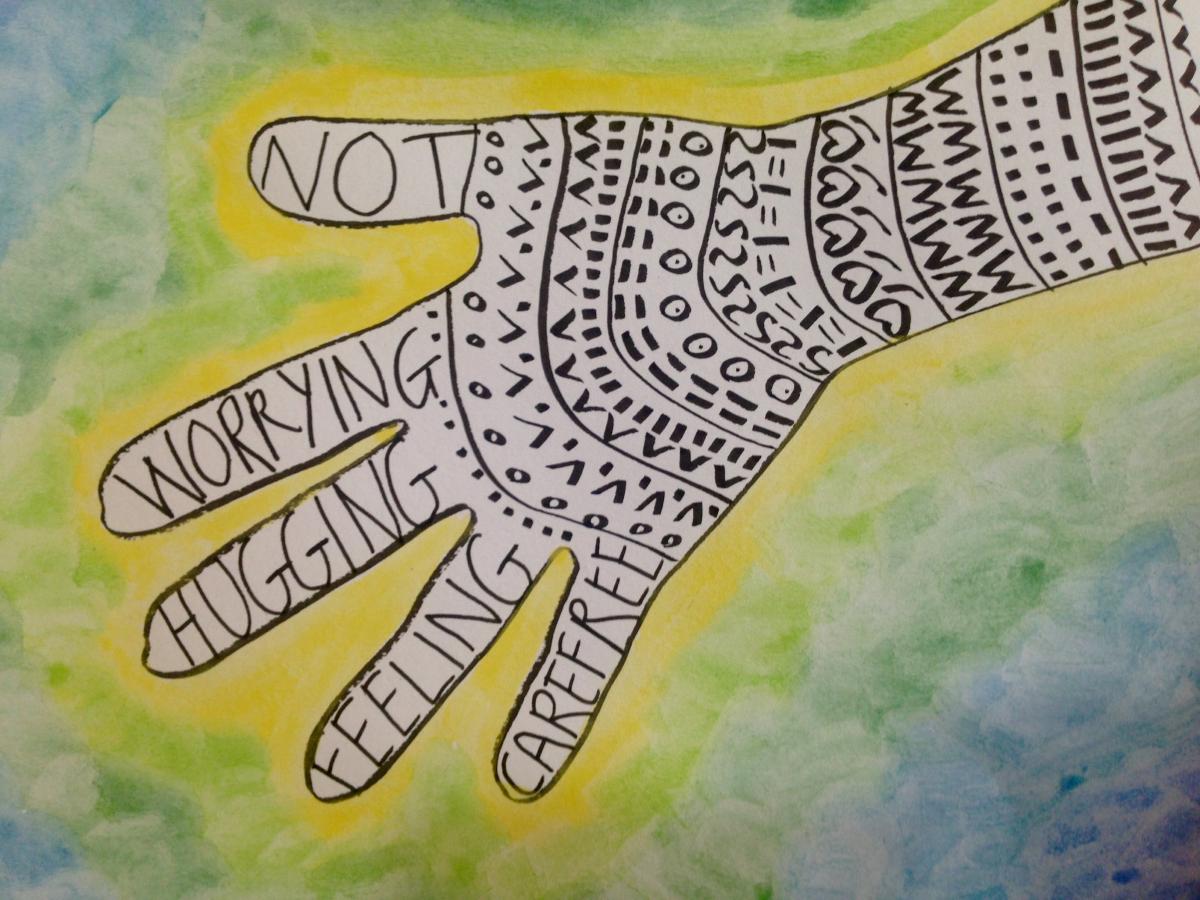
Before lockdown my role as Arts in Health Coordinator revolved around getting out and about making connections with external agencies like museums, libraries, arts organisations and charities. Sheffield Health and Social Care Trust is a diverse trust with various outposts spread across the city and specialities including acute mental health units, secure units, complex dementia unit, transgender clinic, adult autism service, learning disability and perinatal mental health.
I only started the role in September 2019 so was still in the process of getting to know the trust and its service users and staff when Covid 19 stopped things in their tracks. Suddenly all the plans for joint working were put on hold as sectors shut down and the idea of actual face-to-face networking seemed strange, incongruent and old fashioned.
At the same time there was an increased need for hands-on creative activities, a need that has been well documented across the country with people turning to the arts to express themselves and reach out to others. On the acute mental health wards there was a need for distraction and emotional outlets for the anxiety and uncertainty that was everywhere.
I started running twice weekly art sessions at the acute units. Of course, there were complications due to wearing masks which can make establishing a connection with someone difficult and I was anxious about this at the beginning, worried about how I would convey expressions and put people at ease, but this did not turn out to be a barrier and I found that ‘eye smiling’ worked very well!
I kept the activities loose and achievable so that anybody could join in and leave with an artwork. We made watercolour spirals, abstract paper collage starbursts, foam printed cards and masking tape and Brusho landscapes. One of the most popular has been creating mandalas from scratch using a grid and circles as a template. People often came in, looked at the mandala examples and said that they could never make something as complicated, but after a bit of support everyone was able to create a unique mandala.
The sessions varied. Sometimes there was silence, sometimes there were noisy conversations, sometimes there were tears. Sometimes there were all three in one hour. Often there was laughter and discussions about art and what it meant to people to have some time set aside to draw and paint and think and create.
Some people were amazed at what they had made and talked about the sessions helping them cope and being ‘engaging’ and ‘therapeutic’. They talked about how the activity made them feel happy and relaxed, and was a welcome distraction from the ward. Many wanted to stay for longer saying they could paint ‘all day’ and sad that the session was only once a week.
We talked about Vermeer and how he captured light, Basquait’s frenetic energy, Rothko, Van Gogh, Hannah Hoch and Andy Warhol amongst others. I introduced some people to Japanese artist Yayoi Kusama and in turn I learnt about abstract expressionism in the 1930s and the joy of Zentangles.
We also talked about what we were missing – picnics with strawberries in Endcliffe Park, hugs, seeing family, having quiet time, playing music, being joyful, doing normal stuff. For some service users it was a chance to work through issues, for others it was a place to be distracted them.
I am hoping to make some collaborative art works that can capture this strange time and how we were feeling and what we were missing. Something that we could show at our annual Arts Festival which I am starting to plan.
Our theme this year is ‘Viewpoints’ which encompasses how our world has changed, how we have changed and also what we have been able to see during lockdown whether this is looking out of our window or at a screen. During this time, my role has temporarily shifted from outward world facing to inward facing and if there are any silver linings to this difficult time, it is that I have gained a deeper understanding of the acute units and the service users, and built up lasting relationships with the staff and this has helped me grow into my role and see possibilities for future work that I would never have seen if Covid19 had not struck.
